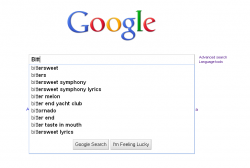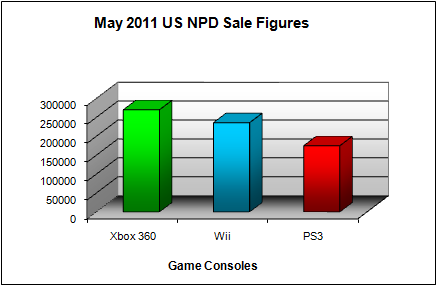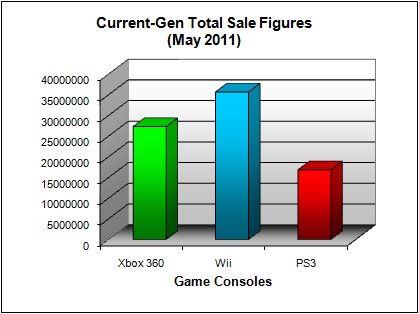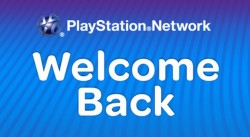We’re already at the half way point of 2011, but for some reason, I still think it’s 2010, and and the “noughties” feels like half a century ago, despite only being 2 years since. Einstein was right, time is relative. And because time is relative, this past week, I definitely had less time than last week, since I don’t remember doing much, but here we are, at the end of the week. And as I suspect time seems to going faster this week than the last, I better hurry and write this WNR before times runs out.
 Let’s not waste any time and start with copyright news. The MPAA made public their lobbying disclosure report this week, for their lobbying activities for Q1 2011. While the MPAA does have other responsibilities, such as getting movie ratings completely wrong all the time, they’re mainly a lobbying group these days.
Let’s not waste any time and start with copyright news. The MPAA made public their lobbying disclosure report this week, for their lobbying activities for Q1 2011. While the MPAA does have other responsibilities, such as getting movie ratings completely wrong all the time, they’re mainly a lobbying group these days.
The MPAA spent $400,000 in lobbying in the first quarter of 2011, and this isn’t very surprising at all. But was surprised me slightly was the target of these lobbying actions. When I think of targets of lobbying, I think politicians. But the MPAA has been lobbying the likes of the DOJ, FBI, DHS and ICE, and I don’t know about you, but this makes me slightly uncomfortable. The main reason for my discomfort comes down to the fact that the people who run these places are not elected officials, and so they’re not accountable to the electorate, nor can a person like me influence these official’s decisions easily, unlike an elected official (well, theoretically anyway – in practice, that’s not really true). Plus, these are law enforcement agencies, and the thought of private corporations cosying up to them feels like they’re trying to get their own private police force. This may be an overreaction, but there’s definitely a reaction here. It also feels like the MPAA is asking these agencies to take independent action, without legal and political oversight, and that doesn’t sound right. How would you feel, if for example, a friendly country’s government started lobbying the military directly – wouldn’t that be a concern? Companies that the MPAA represents aren’t always US owned, Sony being the primary example, and this can be seen as foreign corporations lobbying US law enforcement agencies to take action against US companies and individuals (the only entities that these law enforcement agencies have jurisdiction over). So is this really acceptable?
But regardless, the MPAA seems to have gotten their money’s worth of lobbying, as it appears America’s top ISPs will soon agree to the entertainment industry’s demand for ‘graduated response’, or otherwise known as three-strikes. While the UN has recently attacked graduated response as a human rights abuse, but this was mainly in regards to governments introducing three-strikes, and that being seen as limiting freedom of expression. The MPAA/RIAA can sidestep this thorny issue by making deals directly with ISPs, and reducing or eliminating the government’s role in all of this. I don’t know if this is better, or even worse. It’s worse because if the system was run without the involvement of the government and involvement of the courts, which at the very least is seen as an impartial party (or at least they should be), and there would be a law behind it that can be challenged if needed. But to make the likes of the MPAA and RIAA, or private companies such as ISPs, the ultimate judges of who should and should not get the boot, with the government and legal system completely bypassed, I think this can be dangerous. So on one hand, if it’s government run, it’s a violation of human rights. If it’s run privately, then there’s no due process and accountability. Which tells me graduated response is something that, simply, should not exist, especially to solve such a trivial problem such as online piracy.
So what can people do to avoid being part of the three-strikes system? You can always change ISPs, and as long as graduated response does not become law, there will always be ISPs that do not bend to the will of the MPAA/RIAA. Of course, even if you have no choice but to use AT&T, Comcast or Verizon, and you can’t stop your pirating activities, then you can always just use one of the pirating methods that won’t or can’t be monitored. So how effective will graduated response really be? I don’t think it will for a second stop the serious pirates, and casual pirates don’t download/torrent much anyway (especially when streaming is easier).
The artist currently known as Prince is back in the headlines again, not for his music, but for his views on online piracy (it seems to be the only way he makes headlines these days). But his latest views not only attack web pirates, but the whole digital revolution itself. Prince says that he will protest by not producing any new albums while the Internet piracy problems remains unsolved, so Prince fans should definitely not hold their breath waiting for a new album. Also under attack by the musician, is the current direction of the music business, which has seen companies like Google and Apple dominate. Prince doesn’t like this, because he feels artists are getting paid less. Prince is also against digital music, because he thinks it’s not as good as analogue. So Prince doesn’t like any of this new stuff at all, the artist probably said while shaking his fist and telling the kids to get off his lawn. If he’s so passionate about analogue music, and I know a lot of people are, then perhaps he can sell vinyl records or CDs of his songs on his websites, and at the same time, cut out the Google/Apple middlemen – I’m sure there are people who are interested in this sort of thing, and if there isn’t, it just proves that perhaps it’s the artist himself that’s a bit out of touch.
And sometimes there are things that are worse than piracy for publishers, where maybe even piracy seems like a better alternative. This happened this week for indie game developer Indie Stone, makes of the popular Project Zomboid game. They’ve had to take the drastic action of suspending online gaming due to a pirated version of the game, but it’s not what you think, Indie Stone doesn’t mind the piracy at all. What they do mind is that the game includes a modified feature that adds an update button to the game, that when clicked, grabs the latest version of the game from the developer’s servers, even if the version is already up to date. So instead of legitimate customers downloading updates when there’s a new version available, you could potentially have all the pirates downloading an update even every time they start the game, and costing the developers a lot of money in the process. And so Indie Stone recommends that, really, if you had to update the pirated version of the game, do it via BitTorrent instead. Other than this, Indie Stone says they’re not too concerned about piracy at all, as it does have promotional value.
Again, not much happening in HD/Blu-ray/3D, so let’s skip it again this week (I promise to dig up some news for you next week, even if I have to make it up).
![]()
And so in gaming, Microsoft officially released the beta, non commercial, version of the Kinect SDK for Windows.
They launched the SDK at a 24-hour event where they invited programmers, and Kinect hackers, to use the SDK to come up with some neat apps, which some of them did. The software development kit is still in beta, and for non commercial development only, so right now, it’s all about playing around with Kinect, not about making apps for sale. And while I cannot confess to be a C++ or C# guru, having had a look at some of the same code, it seems fairly easy to follow. I’m sure in the days and weeks, we’ll begin to see beginner “how to” guides for playing around the SDK, and I’ll be sure to take advantage when they arrive.
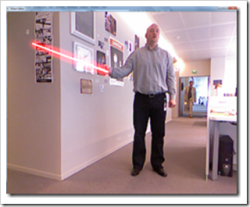
One of the sample apps Microsoft released is a light saber demo (of course), that doesn't look complicated to code
I have to say that Microsoft has made the most out of the Kinect hacks, to the point where I almost think they anticipated all of this, as opposed to actually just reacting to it (big companies usually don’t react this quickly). I mean, did they always plan to release a Windows SDK, or did they only come up with the idea after Kinect hacks became popular? Who knows, but they’ve done the right thing, and the Kinect platform will benefit as a result.
People will make comparison to the PS3 hack, but it’s not the best comparison, since the Kinect hack doesn’t really hurt Microsoft in any way, other than perhaps for them to lose a bit of control. A better comparison perhaps is Sony’s decision to remove OtherOS, and Microsoft’s promotion of Kinect hacks – Sony should not have removed OtherOS, not just because they’re getting hacked all over the place because of it, but because projects like OtherOS allows innovative programmers to get the best out of the hardware, and that can only be a good thing for the PS3.
Speaking of hacking, Sega is the latest victim, but neither Anonymous or LulzSec seems to be behind this one. In fact, LulzSec has vowed to hunt down those responsible for attacking Sega, a company they support due to their love for the Dreamcast. Whatever people say about groups like Anonymous and LulzSec, they’re not out there hacking for profit, or just for the sake of it – they do have a message, and they do choose their targets, even if people don’t agree with their choices.
There’s also the news this week that new Xbox 360 and PS3’s are on the way, well not “new” new, but updated models. Both will use technology advances to decrease the weight, power requirement, heat output and even manufacturing cost of their respective consoles, with perhaps Microsoft making the bigger leap with a move to a system-on-a-chip architecture, which as the name suggests, puts everything on single, much easier to cool, chip. There were some initial rumours that the new PS3 SKU would have PS2 compatibility, but that was put down to a translation problem. But it does beg the question, why isn’t Sony retiring the PS2 and adding software backwards compatibility to all PS3 consoles, via a PSN purchase, for example? Is Sony really saying that despite how powerful they claim the PS3 is, they still cannot find a way to do PS2 emulation in software? If they need help, perhaps they can seek advice from one of the coders behind PCSX2, the open source PS2 emulator.
That looks like it for this week. I shall have more for you next week, so until then, have a good one.



